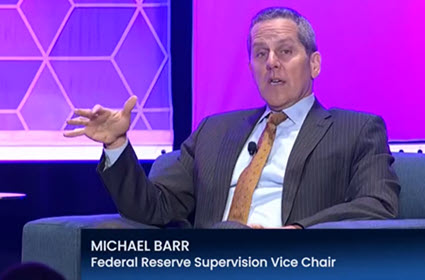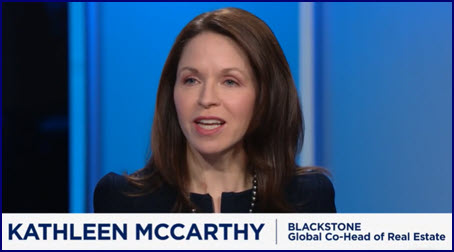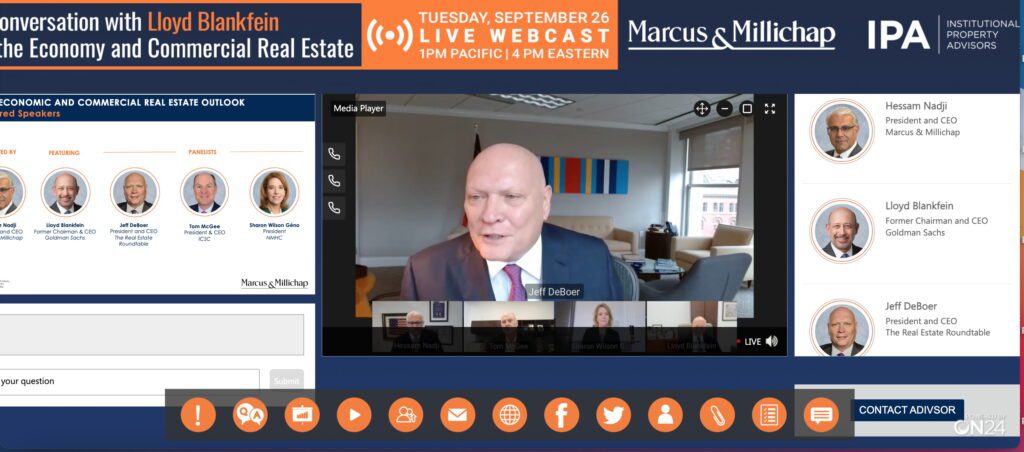
Recent reports show U.S. office vacancies climbed to nearly 20% during Q1 2024 after loan modifications more than doubled last year compared to 2023. Meanwhile, Federal Reserve Board Vice Chair for Supervision Michael Barr cautioned this week that federal regulators are “looking carefully at banks with heavy concentrations in office commercial real estate where there are significant, expected price declines.” (Moody’s Analytics, April 2 | CRED iQ, March 28 | (C-SPAN video, April 3)
Office Sector
- Preliminary data from Moody’s Analytics reinforces the long-term, negative ramifications of hybrid work models. The Q1 2024 office vacancy rate set a new record at 19.8%, up from 19.6% in the prior quarter, and beating two historic peaks of 19.3% in 1986 and 1991. (Bloomberg, April 2 | Quartz, April 3 | CRE Daily, April 4)
- “The office stress isn’t quite done yet,” said Thomas LaSalvia, Moody’s head of commercial real estate economics and an author of the report. He added, “This is part of a longer-term evolution where we are seeing obsolete buildings in obsolete neighborhoods.” (Bloomberg, April 2)
- Brookfield’s Feb. 14 report, “The Misunderstood U.S. Office Market,” emphasizes that high vacancy rates are due to an excess of dated, functionally obsolete office buildings and an undersupply of offices that satisfy tenants’ changing needs.
- To counter economic pressure on some sectors of CRE, borrowers worked with lenders in 2023 to achieve a surge of loan extensions and other alterations to their loan covenants, according to CRED iQ’s “The Wall of Maturities Morphs into the Wave of Modifications.”
- A Roundtable-led coalition of 16 national real estate organizations urged the expansion of a 20 percent tax credit for qualified property conversion expenditures in an Oct. 12, 2022 letter to policymakers. The recommended enhancements included expanding the category of properties eligible for the credit to various types of commercial buildings such as shopping centers and hotels. (Roundtable Weekly, Nov. 11, 2022)
Fed Oversight & CRE Sectors

- The Fed’s top market supervisor told the National Community Reinvestment Coalition on April 3 that CRE refinancing deals will “take some time to work through” as the Fed closely monitors office sector conditions. (C-Span | BGov, April 3 | Roundtable Weekly, March 8)
- Barr said, “This is the kind of thing where it is likely a slow-moving train as the financial sector and commercial real estate market move forward. Over the next two to three years, we are going to see how properties deal with refinancing in a higher interest rate environment. Occupancy rates have lowered because of work-from-home, so for some categories of office CRE they are more exposed to risk.”

- Kathleen McCarthy, global co-head of Blackstone Real Estate and chair-elect of The Real Estate Roundtable, commented to CNBC’s “Closing Bell Overtime” on April 3 that the office sector is different from other CRE investment areas that have performed well. “We do feel like there’s a bottoming happening. There’s no V-shaped recovery … but we do see the cost of capital coming down, we’re seeing more liquidity in markets, and perhaps more importantly for the long term, we’re seeing a sharp decline in new supply,” she said.
- Barron’s recognized McCarthy this week as one of the 100 Most Influential Woman in Finance. She commented on her upcoming role as Roundtable Chair: “To bring together my interest in policy and have a position to help our whole industry in Washington is really exciting.” (Barron’s, April 4)
Commercial and multifamily market conditions will be discussed during RER’s April 15-16 Spring Meeting in Washington DC (Roundtable-level members only) with guests including White House Council of Economic Advisers Chairman Jared Bernstein, House Democratic Leader Hakeem Jeffries (D-NY), and House Financial Services Member French Hill (R-AK).
# # #

